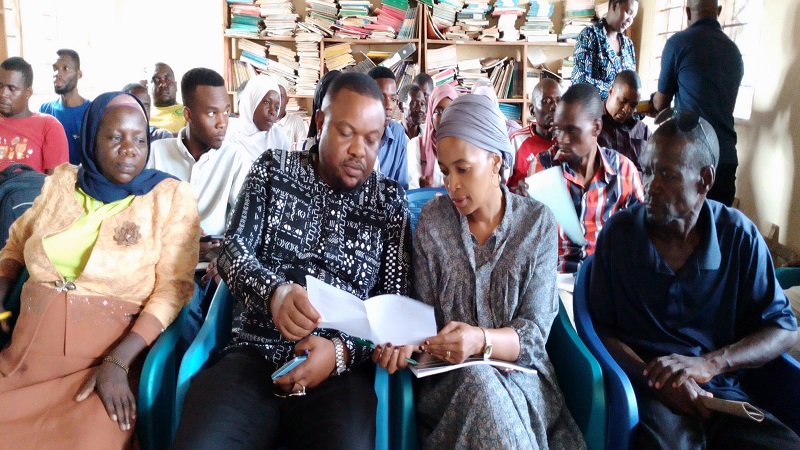SMEs urged to embrace innovation for global competitiveness

Entrepreneurs from East African Community (EAC) member states have been urged to boost their innovation and skills to produce quality products with global market potential.
This call was made yesterday by Zuhura Yunus, Deputy Permanent Secretary, the Prime Minister’s Office (Labour, Youth, Employment, and the Disabled) (pictured), while officiating Tanzania Day at the ongoing 24th EAC Small and Medium (SM) Entrepreneurs Exhibition, popularly known as Jua Kali.
Yunus highlighted that EAC countries are rich in natural resources that can be converted into valuable products. "You need to tap into your creativity to develop marketable products from your local resources," she encouraged.
She also urged the EAC Secretariat to continue supporting the exhibition, emphasizing its role in fostering innovation and expanding markets for SMEs within the EAC.
Annette Mutaawe, the Deputy Secretary General in Charge of Customs Trade and Monetary Affairs at the EAC Secretariat, noted that the exhibition enables entrepreneurs to expand their commercial reach across the region.
Participating Tanzanian entrepreneurs expressed gratitude to President Samia Suluhu Hassan's government for facilitating their involvement, noting it has provided them with a valuable platform to showcase Tanzanian products.
Held under the theme "Promoting Unique Innovation and Skill Development Among Small and Medium Entrepreneurs of East Africa," the 24th EAC Entrepreneurs Exhibition brings together around 1,700 entrepreneurs from all EAC countries, including 299 from Tanzania. This marks the first time South Sudan, which joined the EAC in 2016, is hosting the event.
Small and Medium Enterprises (SMEs) in East Africa are crucial to the region’s economic growth, job creation, and innovation. In Kenya, Tanzania, Uganda, and Rwanda, SMEs account for the vast majority of businesses and employ a significant portion of the population.
SMEs account for a large percentage of total employment in East Africa. In many countries, they are estimated to employ over 80 percent of the workforce, especially in sectors such as agriculture, manufacturing, and services.
In Kenya, for instance, SMEs contribute about 30 percent of the GDP and employ over 80 percent of the workforce. In Tanzania and Uganda, SMEs also play a significant role in both urban and rural economic settings.
In Rwanda, SMEs play a vital role in the country’s economic development, accounting for over 90 percent of all businesses and contributing to approximately 50 percent of the country’s GDP.
They are crucial for job creation, providing around 80 percent of total employment in the private sector.
Access to finance remains one of the biggest challenges, as the large share of SMEs in the EAC region are unregistered or operate informally, making it hard to access credit from traditional banks.
However, the rise of fintech and microfinance institutions has improved access, offering alternative financing solutions like mobile lending and peer-to-peer platforms.
Governments in East Africa are working to create a more favorable regulatory environment for SMEs. Initiatives include business registration simplification, tax incentives, and creating SME-friendly policies.
However, bureaucratic red tape and complex regulations still pose obstacles, especially for small-scale operators.
Despite the challenges, East African SMEs is bolstered by technological advancements, market opportunities, and the potential for strategic partnerships.
Top Headlines
© 2025 IPPMEDIA.COM. ALL RIGHTS RESERVED

























